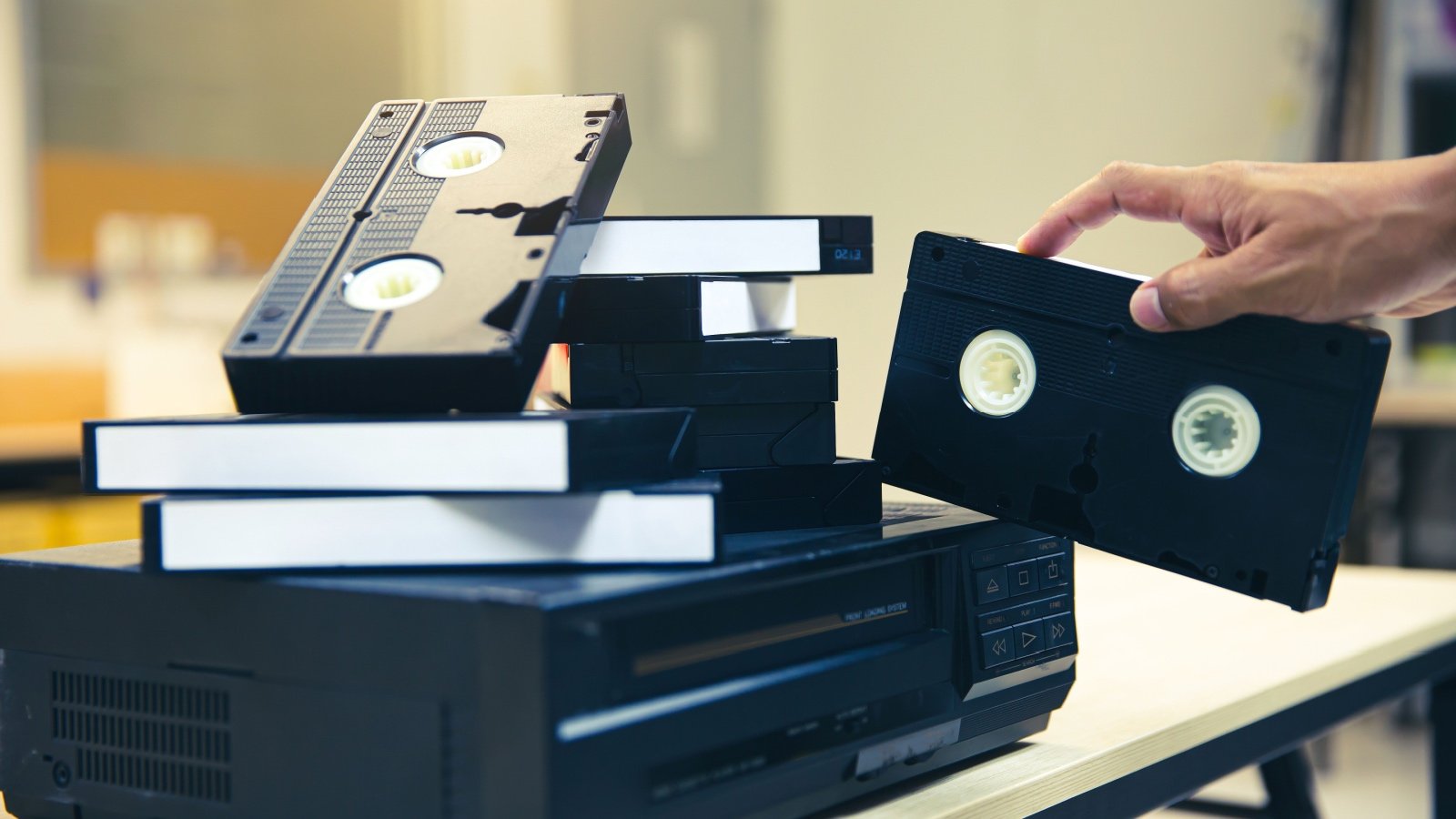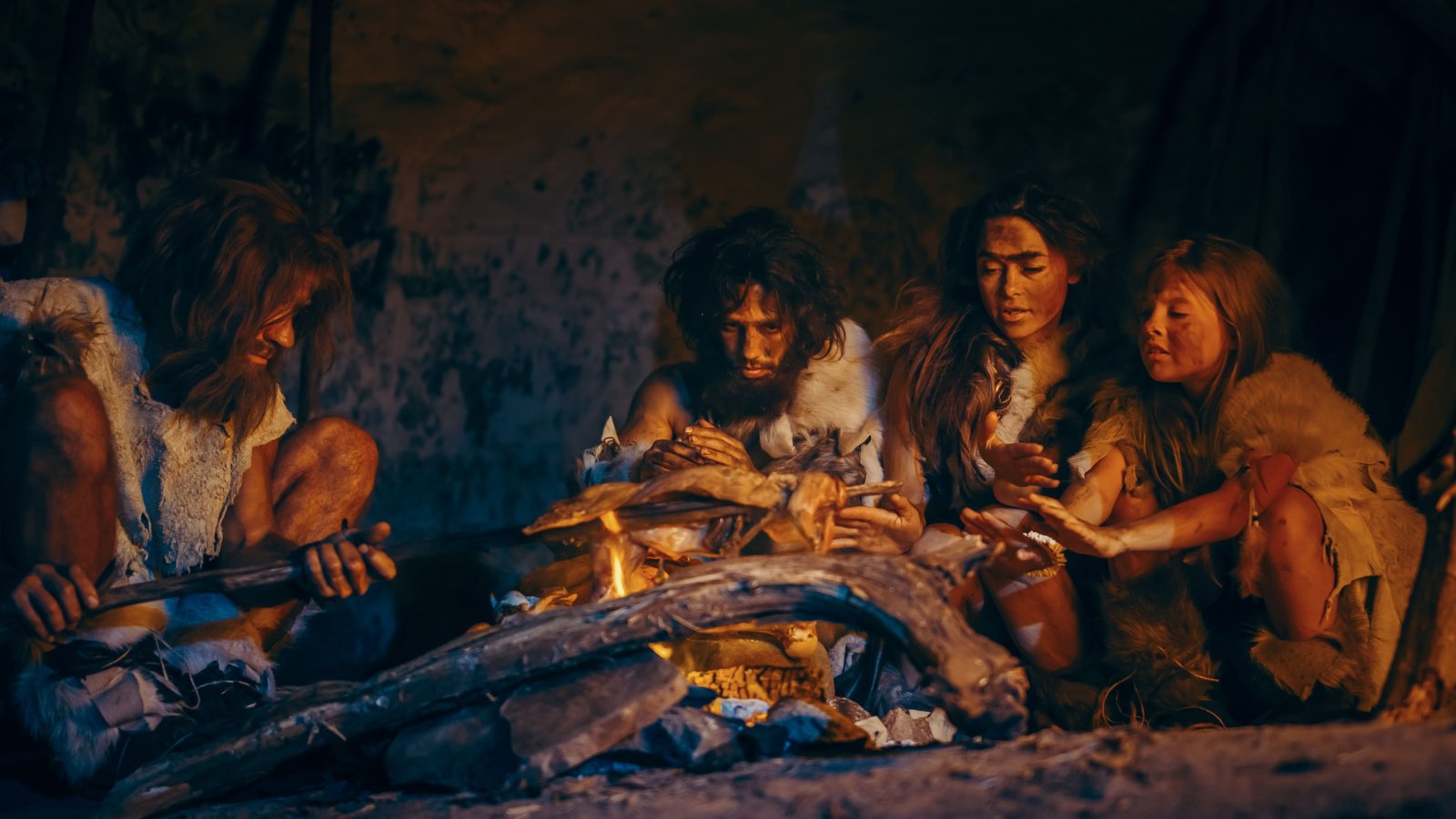Today, reading physical maps, hand-sewing clothing, and developing film give grandmacore vibes. Younger generations are drawn to these outdated practices, which used to be necessary before technology advanced, due to the warm, nostalgic feelings they evoke. Let’s take a look back at old technology that still holds a special place in the hearts of history buffs.
Map Reading

Adventurers, travelers, and daily commuters once relied on this skill to guide them through unfamiliar terrain. Today, digital navigation tools have rendered traditional map reading less necessary, although it still holds value for enthusiasts and in technology-free scenarios.
Cursive Writing

With the advent of keyboards and digital communication, cursive writing has declined dramatically in use and importance. While still taught in some schools, it is no longer a critical skill in the digital age.
Using a Typewriter

The clack of typewriter keys once filled offices and homes where documents were being prepared. Today, the typewriter has fallen out of mainstream favor, along with the skills required to maintain and use it efficiently.
Developing Film

Photography enthusiasts once prided themselves on their ability to develop film in a darkroom, a meticulous process involving precise chemical handling. Digital photography has almost completely supplanted this art, offering instant results and dramatically simpler processes.
Lighting a Fire Without Matches

The ability to start a fire without matches or lighters was a vital survival skill, particularly for explorers and those living in remote areas. Modern conveniences like gas stoves and lighters have made this skill largely redundant in everyday life. Nevertheless, it remains a valued technique among survivalists and outdoor adventurers.
Hand-Sewing Clothes

The average person no longer needs to know how to sew by hand to maintain their wardrobe. The fast fashion industry and modern fabric care tools have largely replaced this once-crucial skill.
Milk Delivery

The daily milkman who delivered fresh milk to doorsteps was a familiar figure in many communities, relying on logistical and customer service skills specific to the job. With the rise of supermarkets and long-life milk, this service and the associated job skills have nearly vanished.
Horseback Riding for Transport

Horseback riding was once a crucial skill for travel, communication, and trade before the advent of the automobile. While still enjoyed recreationally and used in certain professions, riding a horse as a primary mode of transport is largely obsolete.
Morse Code

Although still used by amateur radio enthusiasts and in some military applications, digital communications have largely supplanted Morse code. This change underscores the shift from manual encoding and decoding of messages to instant digital communication.
Operating a Manual Elevator

Manual elevators, operated by an attendant who controlled the elevator’s movements, were common in the early 20th century. The skills required for this job have become redundant with the advent of automatic elevators.
Rotary Phone Usage

The rotary phone required users to dial by rotating a finger wheel for each number, a method that was slow but precise. Younger generations may not even recognize a rotary phone, much less know how to operate one.
Stenography

Stenography, or shorthand writing, was a valuable skill for secretaries and court reporters who needed to take fast, accurate notes. While still used in specific legal and administrative contexts, voice recognition software and faster typing speeds have reduced its prevalence.
VHS Tape Usage

Understanding how to operate a VCR and manage a collection of VHS tapes was essential for home entertainment. The rise of DVDs, streaming services, and digital downloads has rendered the VCR and VHS tapes nearly obsolete.
Making Change Without a Calculator

Modern cash registers and digital payment methods now calculate change automatically, reducing human error and the need for speedy math. This automation has made manual calculation a rare and less valued skill.
Encyclopedia Salesmanship

Door-to-door encyclopedia salesmen were once common, offering a wealth of knowledge in physical form. With the advent of the internet and digital resources like Wikipedia, the demand for physical encyclopedias has plummeted.
Soot Cleaning

The role of the chimney sweep was crucial when coal and wood were primary sources of heating, requiring specialized skills to clean and maintain chimneys safely. Modern heating technologies have made this skill less necessary.
Punch Card Programming

Early computers used punch cards to program and store data, requiring specific knowledge to create and read these cards accurately. The development of more advanced and user-friendly computer interfaces has made punch card skills obsolete.
Using a Slide Rule

Engineers and scientists used slide rules to perform complex calculations before calculators became mainstream. This analog tool required an understanding of mathematical concepts and manual dexterity. The widespread availability of digital calculators and computers has made slide rules a historical curiosity rather than a practical necessity.
Manual Cash Register Operation

The skill of operating a manual cash register, which required memorizing product prices and manually calculating totals and change, was essential for retail employees. Modern digital registers, which automate these processes and track inventory, have largely replaced manual versions.
Managing Ice Deliveries

Before the widespread use of electric refrigerators, ice delivery was essential for food preservation in homes and businesses. As refrigeration technology became accessible and affordable, the need for delivered ice and the associated labor skills disappeared.
Reading Smoke Signals

Historically, smoke signals were used by various cultures as a method of communication over long distances, particularly among Native American tribes. This method required knowledge of how to create and interpret different smoke patterns. With modern communication technologies like phones and the internet, this ancient skill has almost entirely disappeared.
Memorizing Phone Numbers

Nowadays, smartphones store all our contact details, making the need to memorize phone numbers virtually obsolete. This shift highlights how technology has impacted our cognitive habits and memory skills.
Dial-Up Internet Installation

Setting up and troubleshooting dial-up internet connections was a complex task that required specific knowledge of software and modem settings. Today’s plug-and-play broadband and Wi-Fi technologies have eliminated the need for such specialized skills among average users.









Dies bedeutet, dass Sie mit 10 Euro eine Vielzahl von Spielen erkunden können, da die Einsatzgröße auf 1 Euro pro Spin begrenzt
ist, was Ihnen eine lange Spielzeit und viele Gewinnmöglichkeiten bietet.
LowenPlay bietet auch exklusive Spiele von der eigenen Marke LionLine an,
die dem bereits vielfältigen Portfolio eine einzigartige Note verleihen. Löwen Play
arbeitet mit einigen der angesehensten Softwareanbieter der Branche zusammen, um den Spielern ein erstklassiges
Spielerlebnis zu bieten. Zudem gibt es die Möglichkeit, nach Namen zu suchen, sodass du
deine Lieblingsspiele schnell findest. Löwen Play bietet auch exklusive Slots unter
der Marke LionLine an, wie Last Samurai, Lucky Unicorn und Golden Fruits.
Alle Branchen sind in der White List geordnet aufgeführt,
angefangen bei Lotterien des Deutschen Lotto-Toto-Blocks, bis zu Pferdewetten, Sportwetten und natürlich Anbieter für virtuelle Automatenspiele.
Auch soll die Landesmedienanstalten sowie dem öffentlich-rechtlichen Rundfunk helfen, nicht legalisierte
Angebote sofort aufzuspüren und gegebenenfalls entsprechende
Maßnahmen zu ergreifen. Aber auch einer Sofortüberweisung
sowie der Zahlung mit Giropay steht in der Regel nichts
im Wege. Nur so kann gewährleistet werden, dass Spieler in Deutschland eine dauerhaft sichere Basis erleben, bei der vor allen Dingen Fairness, Transparenz und die Verlässlichkeit von Gewinnauszahlungen im Vordergrund stehen.
Sollte es wider Erwarten doch einmal zu Unklarheiten und Problemen mit dem deutschen Online Casino kommen, so ist der Betreiber dahinter sofort für die Behörden greifbar.
Wir stehen für einen verantwortungsbewussten Umgang mit Glücksspielen. Du
kannst im Löwen Play Casino mit einem 100 % Willkommens-Bonus
bis zu 100,00 EUR spielen. Wenn du noch
einen aktiven Einzahlungsbonus auf deinem Echtgeldkonto hast, kannst du
diesen jederzeit stornieren, um das verbleibende Guthaben auszahlen zu lassen.
References:
https://online-spielhallen.de/legzo-casino-login-ihr-weg-zum-spielvergnugen/
For players aiming to climb tiers, consistent, responsible play combined with strategic use
of promotions tends to be the most reliable
path. Contribution rates vary by game; slots typically
contribute 100%, while live and table games contribute less or 0%
by default. Understanding how wagering (playthrough) requirements
affect withdrawals is essential to get real value from promotions.
WinSpirit’s live tables are accessible via the WinSpirit casino login and the mobile app.
Using a Win Spirit casino promo code is easy—simply enter it in the provided field during account setup or when making a deposit.
This hassle-free setup lets you focus on enjoying the games and exploring exciting promotions tailored
to enhance your gaming journey. Thousands of titles, from slots to live play Spin Casino offers higher cashback rates but requires
larger wagering amounts, while Fair Go Casino provides more frequent bonuses but with stricter terms.
Bonus on 2 initial deposits up to 2000 AUD + 100 FS Win Spirit Casino provides customer service through
live chat and email. Follow the instructions sent to your email to reset your credentials
and regain access to your account. The casino works
with reputable software providers to ensure quality
and variety. Win Spirit Casino operates under a valid gaming license, ensuring compliance with international standards for fairness,
security, and responsible gambling.
References:
https://blackcoin.co/ripper-casino-login-australia-complete-guide/
The app features special mobile-only offers, surprise reloads, and early access to new
promotions and tournaments. Whether you’re commuting,
relaxing at home, or on the go, you can access hundreds of top-tier
games with just a tap. You can log in from any device —
desktop, tablet, or smartphone — and your
account details and progress will always be up to date. It also enables
you to take advantage of exclusive offers,
earn loyalty points, and track your gameplay history. The entire process takes just
a few minutes, and once completed, you’ll have full access to our games, bonuses, and loyalty program.
Table players and slot lovers alike benefit from regular
in-person tournaments, raffles, and instant-win campaigns.
Enjoy the full Wrest Point experience from anywhere in Australia!
Wrest Point is Australia’s first legal casino, located on the picturesque
waterfront of Hobart.
References:
https://blackcoin.co/best-paying-online-casinos-australia-high-rtp-pokies-2025-update/
casinos paypal
References:
https://puneriyashrstaffing.com
paypal casinos for usa players
References:
https://jobs.kwintech.co.ke
**mitolyn official**
Mitolyn is a carefully developed, plant-based formula created to help support metabolic efficiency and encourage healthy, lasting weight management.